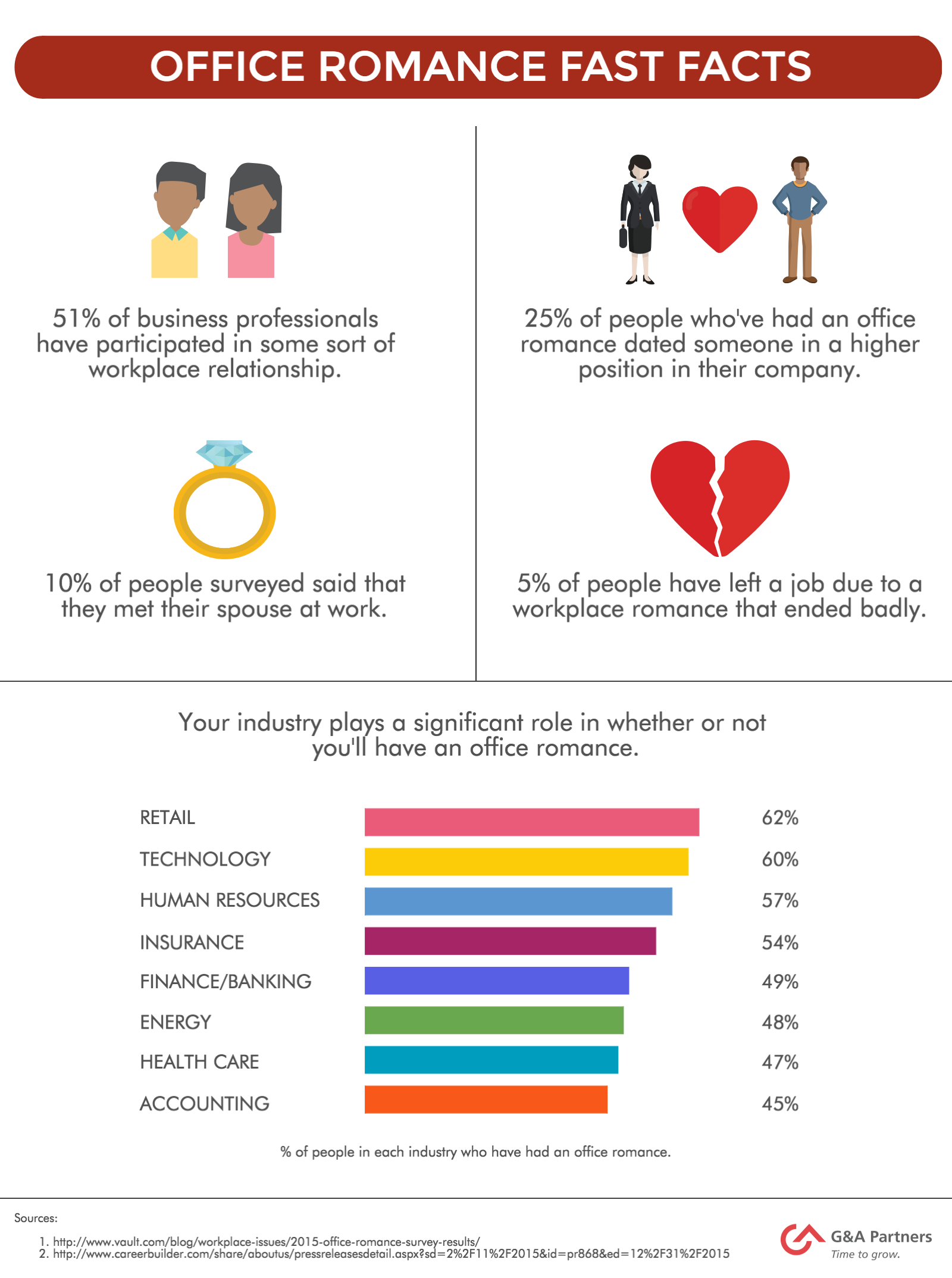Office Romance & The #MeToo Movement
5 things employers MUST know about office romance
Navigating the issue of office romance in the wake of the #MeToo movement
Bonnie Scherry, G&A Partners’ director of Corporate HR, recently shared her tips and insights for shaping policies and dealing with romance in the workplace in the wake of the #MeToo movement with Small Business Trends.

1. No matter how small your business is, romance is an issue.
Small businesses with only a handful of employees might feel that office romance isn’t an issue. But it’s a prominent issue that impacts so many businesses. So even if it hasn’t impacted your business yet, it’s still a good idea to have policies in place.
Scherry says, “I’ve worked with businesses that had as few as 12 employees and in nearly every place I’ve worked there’s been some kind of office romance. So if you think it’s not happening or not going to happen, it probably is. Just because you don’t see it, doesn’t mean it’s not there.”

2. There are legal issues related to office relationships
Part of the reason that office romance can lead to workplace controversy and even legal issues is that if both parties aren’t on board with the interaction, it could be considered sexual harassment. This is especially prevalent in the case of a relationship between an employee and manager or supervisor where an employee might feel they can’t say no without fear of consequences.
3. Office romances aren’t always negative
However, there are also plenty of instances where office romances don’t lead to any controversy. Scherry even pointed to some former co-workers who ended up married and worked very well together. So your policies shouldn’t necessarily outlaw any type of office romance. You should simply make it clear what type of behavior is acceptable and what is not.
4. Vague policies can work best in these situations
When shaping policies for your business, being specific is usually the best course of action. However, there’s so much nuance when it comes to office romance that outlining every potential circumstance can be difficult or even impossible. And actually enforcing those policies can be even more cumbersome. So Scherry recommends you outline specific types of behavior that are absolutely not allowed, and then offer some basic guidelines and treat each situation on a case-by-case basis.
5. The #MeToo movement can help you shape conversations
The recent #MeToo movement has some small business owners concerned about sexual harassment issues. But Scherry believes business leaders should look at this as an opportunity to have some necessary conversations and make sure all employees are actually comfortable with the policies surrounding office romance and sexual harassment.
She explains, “It has led to a lot of important conversations that probably should have happened years ago. You can look at it as an opportunity to start some conversations with your management team and leadership to really shape policies beneficial both to your organization and your employees.”
